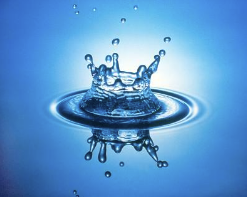- Escambia County Public Schools
- Biology End of Course Review
- SC.912.L.18.12 Properties of Water
Science
Page Navigation
- Home
- Elementary Science Curriculum
-
Biology End of Course Review
- Biology EOC Review
- SC.912.N.1.1 Scientific Method
- SC.912.L.18.12 Properties of Water
- SC.912.l.18.9 Photosynthesis and Cellular Respiration
- SC.912.L.18.1 Macromolecules
- SC.912.L.16.17 Mitosis and Meiosis
- SC.912.L.16.3 DNA Replication
- SC.912.L.14.3 Cell Structure
- SC.912.L.14.1 Cell Theory
- SC.912.L.17.20 Human Impact
- SC.912.L.17.9 Food Webs and Energy Transfer
- SC.912.L.17.5 Population Size
- SC.912.L.16.13 Reproductive System
- SC.912.L.16.10 Biotechnology
- SC.912.L.14.52 Immune System
- SC.912.L.14.36 Cardiovascular System
- SC.912.L.14.26 The Brain
- SC.912.L.14.7 Plant Structure
- SC.912.L.16.1 Genetics
- SC.912.L.15.13 Natural Selection
- SC.912.L.15.8 Origin of Life
- SC.912.l.15.6 Classification
- SC.912.L.15.1 Evolution
SC.912.L.18.12 Properties of Water
ORGANISMS, POPULATIONS AND ECOSYSTEMS
CLASSIFICATION, HEREDITY AND EVOLUTION
WHAT YOU NEED TO KNOW
-
You need to know the specific properties of water that contribute to Earth's suitability as an environment for life. These include:
- cohesive behavior
- ability to moderate temperature
- expansion upon freezing
- versatility as a solvent
- hydrogen bonding and polarity
EXAMPLE ONE
-
Water is essential for life. Its special properties make water the single most important molecule in plant life. Which of the following properties of water enables it to move from the roots to the leaves of plants?
A. Water expands as it freezes.
B. Water is an excellent solvent.
C. Water exhibits cohesive behavior.
D. Water is able to moderate temperature.
EXAMPLE TWO
-
Large bodies of water, such as lakes and oceans, do not quickly fluctuate in temperature. What is the reason for this phenomenon?
A. Water is an acid.
B. Water is a versatile solvent.
C. Water has a high heat capacity.
D. Water acts as a buffer.
EXAMPLE THREE
-
Why does ice stay at the top of oceans instead of sinking to the bottom?
A. Ice is colder than liquid water.
B. Ice is less dense than liquid water.
C. Ice is more dense than liquid water.
D. Ice is warmer than liquid water.
EXAMPLE FOUR
-
Water is often called the "universal solvent" because many substances can be dissolved in water. What property of water allows it to be such a versatile solvent?
A. purity
B. polarity and cohesion
C. high heat capacity
D. expansion upon freezing
WATER
WATER MOLECULES: TO STICK OR NOT TO STICK
IN YOUR BOOK
-
General Chemistry - Section 2.2, pg. 40
Honors Chemistry - Section 2.2, pg. 33



